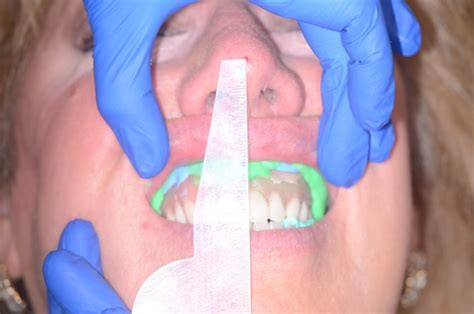Denture Relining: A Simple Guide to Frequency
Dentures, while a fantastic solution for missing teeth, require regular maintenance to ensure a comfortable and functional fit. One crucial aspect of this maintenance is relining. But how often should you consider denture relining? This comprehensive guide will explore the frequency of relining, the signs you need it, and what to expect from the process.
What is Denture Relining?
Denture relining involves adding a new layer of material to the inside surface of your dentures. This layer helps to create a tighter, more comfortable fit by compensating for changes in your jawbone and gum tissue. Over time, the bone and gums naturally shrink, leading to a loose fit, which can cause discomfort, difficulty eating, and even speech problems. Relining essentially restores the suction and stability of your dentures.
How Often Should You Re-line Your Dentures?
There's no single answer to how often dentures need relining. It depends on several factors, including:
- Your individual oral health: Some individuals experience bone resorption (bone loss) more rapidly than others.
- The type of dentures: Full dentures generally require relining more frequently than partial dentures.
- Your lifestyle: Grinding your teeth or consuming hard foods can accelerate wear and tear.
- Your oral hygiene practices: Proper cleaning and care can help prolong the life of your dentures and reduce the need for frequent relining.
Generally, however, most dentists recommend considering a reline every 6 to 12 months, or even sooner if you notice any significant changes in the fit of your dentures. Regular check-ups with your dentist are crucial for monitoring the fit and identifying when a reline is necessary.
Signs You Need a Denture Reline
Several signs indicate that your dentures may require relining. These include:
- Loose-fitting dentures: This is the most obvious sign. If your dentures feel loose or wobbly, it's time to consider a reline.
- Discomfort or soreness: Pain or irritation under your dentures often signals a poor fit.
- Difficulty chewing or speaking: A loose fit can make it challenging to eat and speak normally.
- Changes in your bite: You might notice your bite feels different or that your dentures are clicking together.
- Food getting trapped under your dentures: This indicates a gap between your dentures and gums.
What are the Different Types of Relining?
There are two main types of denture relining:
- Soft Reline: This involves adding a soft, pliable material to the denture's inner surface. Soft relines provide immediate comfort and are often a temporary solution.
- Hard Reline: This uses a hard, durable acrylic resin for a more permanent solution and improved fit. Hard relines typically last longer than soft relines.
What if my dentures are too old for a reline?
Eventually, dentures become too worn or damaged to benefit from relining. If your dentures are significantly worn or cracked, a reline might not be the best option. In such cases, your dentist may recommend making new dentures.
How much does a denture reline cost?
The cost of a denture reline varies depending on several factors, including the type of reline (soft or hard), your location, and your dentist's fees. It's best to contact your dentist directly for a quote.
Can I reline my dentures at home?
No. Attempting to reline your dentures at home is strongly discouraged. It can lead to poor fit, damage to your dentures, and even oral health issues. Always consult a dentist for professional relining.
How long does a denture reline last?
The longevity of a denture reline depends on several factors, including the type of reline and the individual's bone resorption rate. A soft reline might last several months, whereas a hard reline could last a year or longer. Regular checkups with your dentist will help determine when another reline is needed.
This comprehensive guide provides a clear understanding of denture relining, its frequency, and associated factors. Remember, regular dental check-ups and proactive maintenance are key to ensuring the longevity and comfort of your dentures. Always consult with your dentist for personalized advice on your specific situation.

